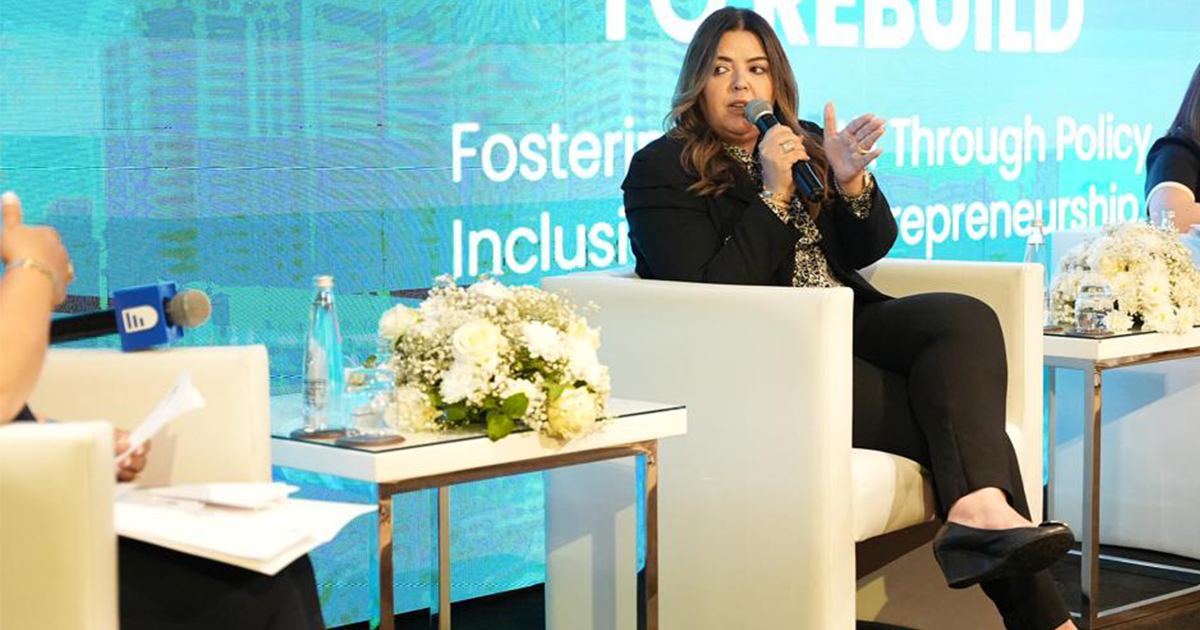AKSOB Assistant Professor Shares Her Vision for the Future of Learning
A recently published book by Dr. Samar Aad provides a roadmap for the effective and responsible implementation of AI technology in education.
Her recent co-authored book, After Generative AI: Preparing Faculty to Transform Education, Learning, and Pedagogy, written with Professor Marian Hardy of Durham University and published by Emerald Publishing, provides educators with a timely and vital roadmap for integrating AI tools into teaching practices while maintaining a human-centered and ethical approach.
Structured across ten chapters, the book addresses the opportunities, challenges and strategies surrounding AI in education. It explores how educators can adapt their pedagogical practices in an AI-enhanced world, covering curriculum redesign, ethical considerations, data bias, academic integrity and capacity-building for faculty.
Dr. Aad, who began exploring the role of AI in education in 2023, witnessed firsthand the academic community’s bafflement and division. “We saw faculty respond in three ways,” she noted. “Some were fearful, others skeptical, and some, like myself, embraced it early despite the trial and error involved.” This proactive mindset has shaped both the narrative and practical frameworks outlined in the book.
A core component of After Generative AI is its attention to policy development. At LAU, Dr. Aad, a member of the AI policy committee under the AI/XR Task Force, is leading an initiative to establish adaptive and inclusive AI institutional policy and guidelines. “Policy should not restrict educators,” she explains. “It should empower them with flexibility for each discipline and a clear understanding of the risks, tools and ethical practices.”
These policies reflect the broader vision of LAU: To prepare students to succeed academically and thrive as future leaders in a complex, tech-driven world. “Our student-centered approach means equipping learners with academic knowledge and the skills and mindset the industry demands,” Dr. Aad affirms. “Through experiential learning, I encourage students to integrate AI into their projects, whether they are tackling real-world challenges or designing solutions with social impact, so they graduate ready to lead, adapt and contribute meaningfully to society.”
The collaboration with Professor Hardy stemmed from earlier research on student influencers and digital behavior, during which the topic of AI repeatedly emerged. With faculty globally struggling to navigate AI adoption, the authors responded by creating a comprehensive guide grounded in real-world cases and forward-looking analysis.
Reflecting on this scholarly collaboration, Professor Hardy described her partnership with Dr. Aad as a “truly enriching experience” driven by a shared commitment to making education more inclusive and responsive in a rapidly changing era. “We wanted to speak directly to what educators and students are currently dealing with while keeping the human aspect at the center,” she added.
The book’s impact is already being felt. Its release on May 9, 2025, was marked by a live interview on MTV Lebanon, coinciding with its official launch. Since then, Dr. Aad has discussed the book at international conferences and academic institutions, including the Open Arab University Conference and Freie Universität Berlin through the Erasmus+ Teaching Mobility program. She will present related research at the Academy of Management in Copenhagen this July.
“After Generative AI is not only a resource for higher education faculty,” Dr. Aad notes, “it serves as a roadmap for governments, ministries of education and organizations looking to implement responsible and effective AI strategies at national and institutional levels,” she says. “With strategic thinking, Lebanon, a small country with minimal resources but tremendous human capabilities and institutions like LAU can lead meaningful innovation.”
As the conversation around AI evolves, Dr. Aad and Professor Hardy are already working on their second book. The urgency is apparent: As technology shifts rapidly, education should, too. On this level, LAU’s Artificial Intelligence and Cyber Systems (AICS) Research Center facilitates international collaboration to lead a research hub in this field.
To browse more scholarly output by the LAU community, visit our open-access digital archive, the Lebanese American University Repository (LAUR).
